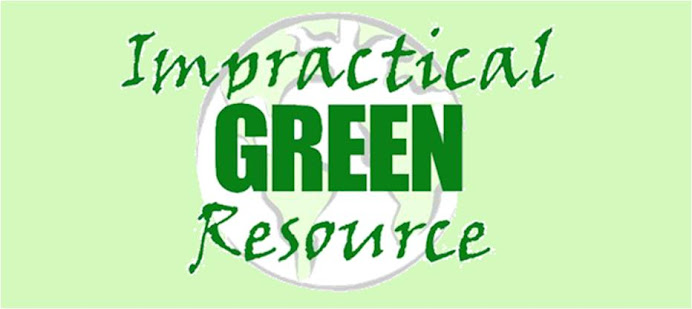It's time for the first round match up between (4) Wetland Conservation and (5) LEED Certification. This one should be a close one, so let's get it started!
Wetland Conservation
First up is Wetland Conservation. A great example of poorly managed Wetland Conservation is right here in Northwest Ohio. I wasn't here back in the early 1800's, but this whole area used to be a part of the Great Black Swamp. As Americans moved west and needed land for farming, they drained the whole area, most likely destroying much of the animals and plants that lived here. (There used to be Mud Hens here, now we only have baseball players).
Impact on the Environment (14/15):
The practice of preserving the wetlands has an enormous impact on the environment. While I don't have numbers to prove it, studies have estimated that amphibians could go extinct if we continue to drain wetlands at the pace we're going. And that would mean millions upon billions more bugs flying around stinging us and giving us diseases like West Nile Disease. Get rid of the wetlands and say hello to the next plague!
Practicality (5/10):
One of the things that I was thinking about when I was thinking of Wetland Conservation was why wetlands are destroyed in the first place. Because swamps smell bad. Wait, no, hang on. It was actually to make land for farms and houses. So as the population around the world increases, we need more and more land to sustain us. Until we can improve non-conventional farming techniques such as hydroponic farming, we need to convert the wetlands into farms.
Sustainability (7/10):
Wetlands have been around for millions and millions of years, so as long as we don't do anything incredibly stupid (which we will), wetlands can take care of themselves. Every time I gain hope that people are finally figuring things out and doing the right things, something like the BP Oil Spill happens and ruins everything. BP, you have crushed the hopes and dreams of millions of children around the world. I hope you can't sleep at night because of it. You know, if you were a person.
Awesomeness (5/10):
While wetlands often get romanticized by things like the Everglades in Florida (which get a 10/10 in my book), more often than not wetlands really aren't anything special. Sure, scenic lakes in the mountains are beautiful, but if you are really dedicated to preserving the wetlands, nobody's going to be able to get to them in the first place, so nobody will be able to enjoy the beauty of it all Small price to pay to avoid the Black Death: Part 2, I guess.
User Input (0/5):
Get those comments in, everyone!
LEED Certification
LEED Certification, for those of you that don't know, stands for Leadership in Energy and Environmental Design. It's a rating system for buildings that covers a variety of topics such as water and energy conservation, Green building design, natural sunlight, use of alternative energy and other topics. Buildings can be Platinum, Gold, Silver, or Certified (really, not Bronze?). This is useful mainly as a PR tool, as consumers can see if their favorite company has practices that are good for the environment.
Impact on the Environment (8/15):
This one is a tricky one. Yes, I want companies to be cognizant of their carbon footprints when they are building new facilities, but I'm always skeptical of rating systems like this. It encourages managers to make improvements simply for the sake of getting the next level of certification. And while the practices that are being rated are good for the environment, the rating system itself doesn't do a whole lot to protect the environment.
Practicality (10/10):
It's fabulous that someone (probably more like someones) came up with a single, unified way of measuring how Green a building is. This is something that can be done on any building and it's a very simple way for building and plant managers to see where they're on track and where they're behind their competitors.
Sustainability (3/10):
This is where I get worried. LEED Certification hasn't been around long enough to know whether people will keep up with the practices that got them certified. I'm really afraid that people are going to get their certification and give up trying to improve. Until there is a solid re-certification process, LEED may be simply a fad that might pass in 10 or so years.
Awesomeness (3/10):
Okay, I know that I'm a nerd I think LEED Certification is pretty awesome But that's just me. Most people don't think it's all that awesome. And I respect their opinions.
User Input (0/5):
Get those comments in, everyone!
Alright, let's tally those scores!
Wetland Conservation: 31
LEED Certification: 24
Sorry, LEED Certification, it looks like you won't be moving on to the next round. Better luck next year (I probably won't do this next year). But in the mean time, next week we see the match up between (3) Paperless Living and (6) Wildlife Conservation. Should be exciting!

Wildlife Conversation is way more awesome. Paperless living uses way too much electricity. Besides, if we get rid of all of the wildlife, then we have too much on-road parts of the Buckeye Trail.
ReplyDelete